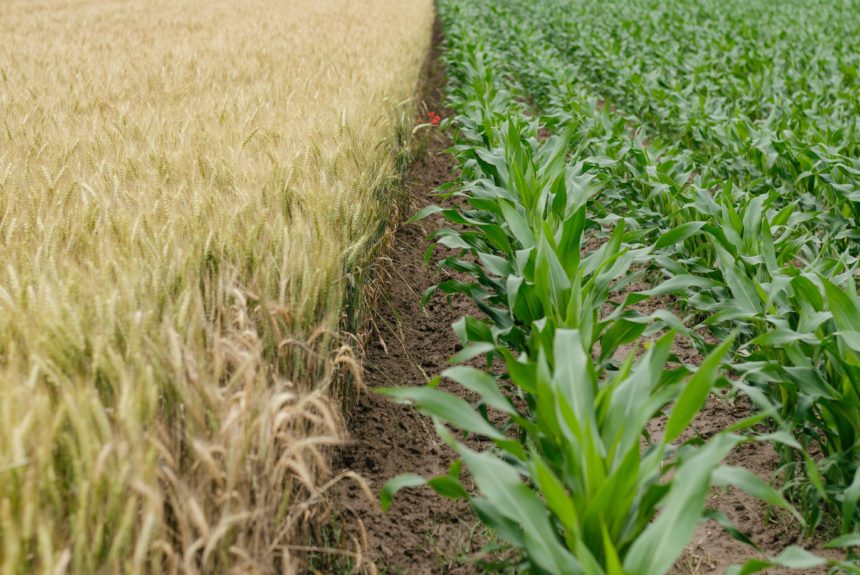Current strategies involving traditional pest management strategies needlessly contribute to climate change. According to a special report by the United Nations, agricultural activities, which include the use of chemical pesticides and fertilizers for crop production, account for about 25 percent of annual global greenhouse gas emissions. Examples include standard crop protection products like nitrogen-based fertilizers that release climate-warning greenhouse gases into the atmosphere.
Other commonly used agricultural inputs also contaminate the soil and waterways, threatening fragile ecosystems and undermining biodiversity. While pest management solutions – such as pesticides – are necessary to improve crop yield and maintain plant health, sustainable bio-based alternatives can be just as effective. One such example is Marrone Bio Innovations, a Davis, CA-based biotech firm dedicated to upending the conventional pesticides market with a range of effective and biologically derived products.
Founded in 2006, Marrone Bio markets itself as a leader in nature-based pest management and crop health solutions. The firm develops cutting-edge sustainable formulas targeting common agricultural afflictions, like plant diseases, invasive pests, and unruly weeds.
One of its flagship products, BIOSt Nematicide, is a seed treatment formulated to eradicate plant-parasitic nematode worms and soil-dwelling insects in soybeans and corn seeds. The product received a climate impact rating of 9.8 out of 10 following a third-party analysis–an almost-perfect score in sustainability. When the independent panel measured the environmental safety of the BIOSt Nematicide-treated crops, the review found the biological released over 85% less greenhouse gas emissions than similar conventional alternatives.
Another study conducted a greenhouse gas (GHG) impact assessment of Marrone Biologicals (MBI) biopesticides versus conventional synthetic pesticides, finding substantial reductions in GHG emissions (69% to 91%) when switching to the company’s products. The emissions savings are equivalent to 39 to 46 Kilograms of CO2 per acre per year.
The two studies attest to the sustainability of the company’s products and its huge climate mitigation potential. According to a 2007 Intergovernmental Panel on Climate Change report, agriculture has one of the highest mitigation potentials of any industry.
And the potential for engineering a multitude of invaluable pipeline candidates is enormous.
The company has already screened over 18,000 microorganisms and 350 plant extracts for potential conversion into patented products.
According to the company, environmental samples are collected from high-value biodiversity habitats like rainforests and alpine areas. Scientists are more likely to encounter plant and animal organisms in these locations with unique plant health-promoting properties like resistance to plant diseases, pests, and higher yields. Once selected, candidates are reviewed for their minimal environmental impact.
This approach has led Marrone Bio to an award-winning commercial product line that includes crop protection products like nematicides, herbicides, insecticides, and fungicides.
But the industry still has unmet needs. Potential areas for improvement include developing alternatives to ammonium nitrate or urea, the standard ingredients used in nitrogen fertilizer. Nitrous oxide, the greenhouse gas released from common synthetic and organic fertilizers, is particularly harmful to the environment. Although the greenhouse gas occurs naturally as part of the Earth’s nitrogen cycle, almost half of all global nitrous oxide emissions are caused by human activities. Following methane (10%) and carbon dioxide (80%), nitrous oxide accounts for approximately seven percent of all man-made GHG emissions in the United States. The statistic is particularly worrying given that nitrous oxide is 300 times more powerful at trapping heat than carbon dioxide.
Marrone Bio is focused on developing solutions that can meet the industry’s next-generation needs for both sustainability and efficiency. The company has proven that there is room for improvement in the pesticides market and that it is possible to develop plant solutions as renewable as they are reliable. Stay tuned and watch how Marrone Bio will continue to lead in the pest control space.
Nathalie Voit is a freelance content creator and a graduate of the University of Florida. She is an alumni of The Heritage Foundation’s Young Leaders Program.
The views and opinions expressed are those of the author’s and do not necessarily reflect the official policy or position of C3.
